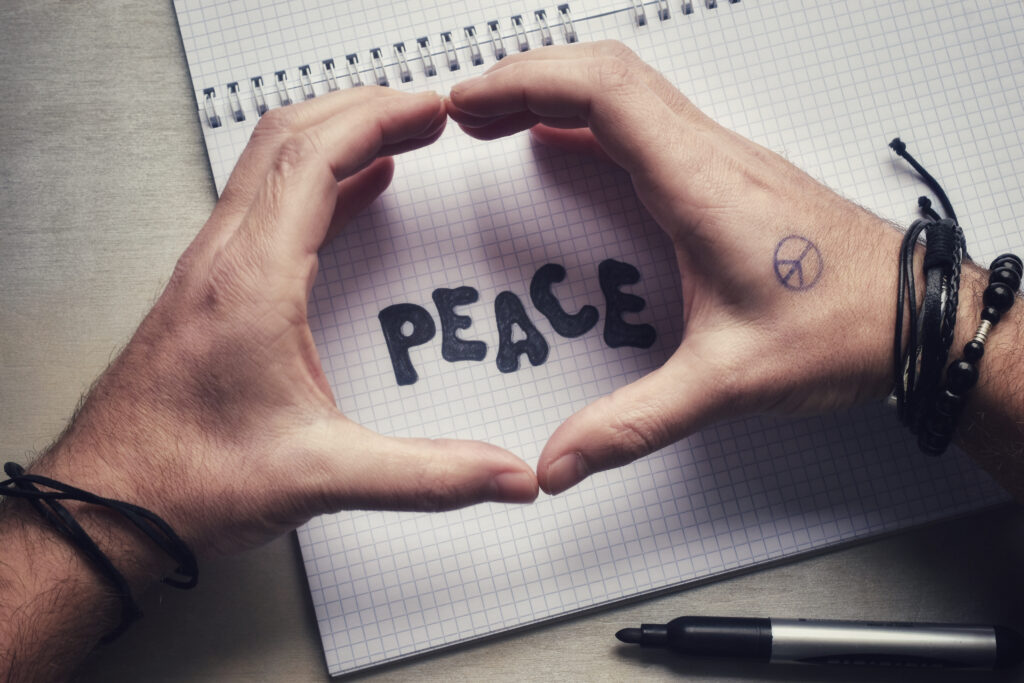Relationships should feel like teamwork—not a solo mission.” Yet, if you constantly feel like you’re the only one putting in effort, you might be stuck in a one-sided relationship—an emotionally draining dynamic where one partner invests significantly more than the other. Psychologists describe this imbalance as a form of attachment insecurity, where one person becomes the “giver” while the other takes love, time, and energy for granted. Over time, this unequal exchange breeds resentment, loneliness, and even anxiety—in fact, 65% of people in unbalanced relationships develop anxiety (Journal of Marriage & Family, 2023). If you’re exhausted from carrying the emotional weight alone, this isn’t just “how relationships are.” It’s a sign something needs to change. Let’s uncover the 10 undeniable signs you’re in a one-sided relationship—and, more importantly, *how to fix it (or walk away with your strength intact).”
Relationships should feel like teamwork—not a solo mission.” Yet, if you constantly feel like you’re the only one putting in effort, you might be stuck in a one-sided relationship—an emotionally draining dynamic where one partner invests significantly more than the other. Psychologists describe this imbalance as a form of attachment insecurity, where one person becomes the “giver” while the other takes love, time, and energy for granted. Over time, this unequal exchange breeds resentment, loneliness, and even anxiety—in fact, 65% of people in unbalanced relationships develop anxiety (Journal of Marriage & Family, 2023). If you’re exhausted from carrying the emotional weight alone, this isn’t just “how relationships are.” It’s a sign something needs to change. Let’s uncover the 10 undeniable signs you’re in a one-sided relationship—and, more importantly, *how to fix it (or walk away with your strength intact).”

10 Signs You’re in a One-Sided Relationship
1-You Initiate 90% of Contact (Texts, calls, plans)
One of the clearest signs of a one-sided relationship is when you’re the one initiating nearly all contact—texting first, making phone calls, and planning every date or meetup. If you stopped reaching out, would the conversation die? A healthy partnership involves mutual effort; both people should feel excited to connect. Research shows that in balanced relationships, initiation rates are nearly equal (Journal of Social and Personal Relationships, 2023). But if you’re keeping the entire dynamic afloat alone, it’s not just ‘busyness’—it’s emotional labor that’s going unnoticed. Pay attention to patterns: Do they only respond when you text? Do they seem indifferent when you suggest plans? This imbalance often reflects deeper issues of priority and commitment.
2-Your Partner Avoids Vulnerability (Surface-level convos only)
Your partner dodges deep talks, keeping conversations superficial—no sharing fears, dreams, or past wounds. They deflect with jokes, vague answers, or sudden ‘busyness,’ leaving you feeling emotionally shut out. True intimacy requires vulnerability; if they refuse to let you in, you’re likely investing more than they are.
3-You Justify Their Behavior (“They’re just busy…”)
You constantly make excuses for their lack of effort—‘They’re just busy,’ ‘Work is stressful,’ ‘They’re bad at texting.’ But deep down, you know: if they wanted to, they would. One-sided relationships thrive on justification. Stop explaining away their indifference—your needs deserve acknowledgment, not apologies.
4-They Rarely Compromise (Their needs always come first)
Compromise is the heartbeat of a healthy relationship—but if you’re the only one bending while your partner refuses to budge, it’s a red flag. Whether it’s choosing date spots, resolving conflicts, or making life decisions, their needs always take priority. This imbalance leaves you feeling unheard and devalued, as if your preferences are an afterthought. Love shouldn’t feel like a one-way negotiation.
5-You Feel Lonely—Even Together (Emotional disconnection)

Feeling lonely while sitting right next to your partner is one of the clearest signs of emotional disconnection. You might share space, but conversations stay shallow, affection feels forced, and you sense an invisible wall between you. This ‘together-but-alone’ dynamic often means your emotional needs aren’t being met—a hallmark of one-sided relationships where intimacy exists only on one side.
6-Your Efforts Aren’t Reciprocated (Gifts, acts of service, affection)
You put in all the effort—thoughtful gifts, acts of service, affection—but get little to nothing in return. If you’re always the one remembering anniversaries, initiating hugs, or planning surprises while your partner rarely reciprocates, it’s a glaring sign of a one-sided relationship. Love should feel like a two-way street, not a solo marathon where you’re left emotionally drained.
“A 2023 study found unbalanced effort increases resentment by 73% (Journal of Social Psychology).”
7-They Withhold Affection to Control You (Hot-and-cold behavior)
They shower you with affection one day, then suddenly go distant—keeping you guessing and desperate for their approval. This hot-and-cold behavior is a control tactic, not a communication style. By withholding love intermittently, they train you to chase their validation, creating an addictive cycle of anxiety and reward. Healthy relationships don’t play games; they offer consistency.
8-You Fear Speaking Up (Avoiding conflict to keep peace)

You bite your tongue during disagreements, dodging conflict to ‘keep the peace’—even when your needs are ignored. This avoidance often signals a one-sided relationship, where your silence enables their complacency. Studies show suppressing emotions long-term increases resentment and anxiety (Journal of Couple Therapy, 2023). Healthy love requires safe space for both voices—not just one.
9-They Don’t Celebrate Your Wins (Indifference to your success)
Your achievements—big or small—go unnoticed or met with indifference. While you cheer for their successes, they brush off yours with a casual ‘cool’ or change the subject. This lack of enthusiasm isn’t just dismissive; research shows partners who downplay your wins erode self-esteem over time (Journal of Social Psychology, 2023). A healthy relationship thrives on mutual pride—not one-sided support
10-You’re the Only One Making Future Plans (They’re “go with the flow”)
If you’re the only one bringing up future plans—whether it’s vacations, moving in together, or even next weekend’s dinner—while your partner responds with vague, non-committal answers like ‘We’ll see’ or ‘I’m easy,’ it’s a red flag. A healthy relationship involves two people actively shaping their future together. If they refuse to engage or leave all the planning to you, it signals disinterest or emotional unavailability—not ‘chill’ vibes.




 Relationship Burnout Is Real—Here’s How to Spot and Prevent It
Relationship Burnout Is Real—Here’s How to Spot and Prevent It
Leave a Reply